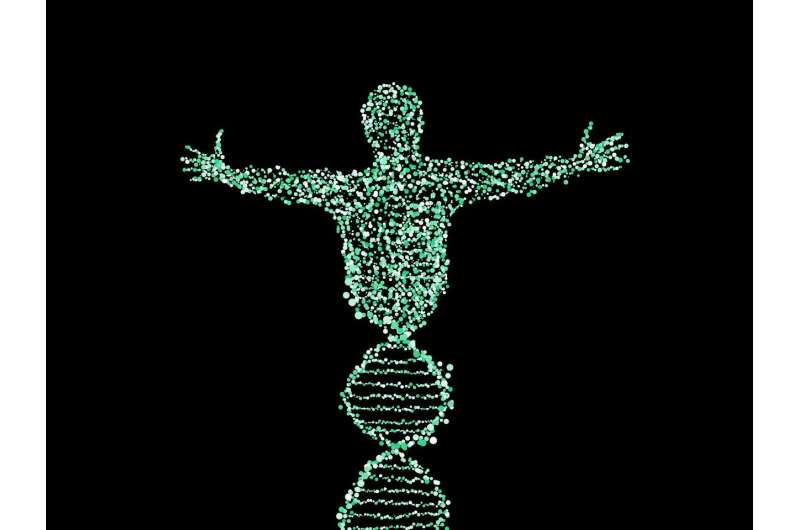How a specific metabolite tells cells whether to repair DNA
Originally published by Anna Megdell, University of Michigan, on November 2, 2023
Credit: CC0 Public Domain
Metabolites called nucleotides are the building blocks of DNA and can impact cancer's sensitivity or resistance to chemotherapy and radiation in brain cancer. Findings from researchers at the University of Michigan Health Rogel Cancer Center, published in Cancer Discovery, show how a specific nucleotide metabolite, called GTP, controls responses to radiation and chemotherapy in an unexpected way.
"We learned that if you increase a cell's GTP levels, it makes it really resistant to radiation or chemotherapy. Lowering GTP levels, the cell becomes much more sensitive," said Daniel Wahl, M.D., Ph.D., associate professor of radiation oncology at Michigan Medicine and senior author of this paper.
Researchers have long known that levels of nucleotides like GTP control how fast DNA damage is repaired, which in turn controls sensitivity to therapies.
Researchers previously thought that this only happened because nucleotides are the building blocks that form DNA. But these findings uncover an entirely new way that nucleotides control DNA repair.
"GTP impacts resistance or sensitivity to treatment not just because it's a building block of DNA, as we previously thought," Wahl continued.
"Instead of only affecting the physical structure of the DNA, it also acts as a signaler. The levels of GTP turn on a signaling pathway and give cells instructions to repair damaged DNA."



Comments
Post a Comment